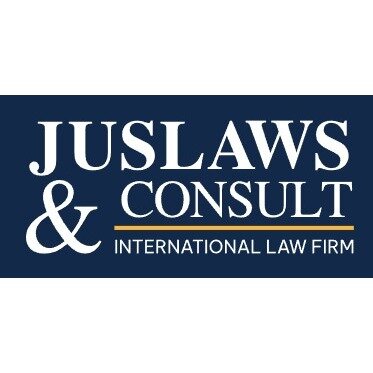Best Auto Dealer Fraud Lawyers in Bangkok
Share your needs with us, get contacted by law firms.
Free. Takes 2 min.
List of the best lawyers in Bangkok, Thailand
Legal guides written by Smart Legal Solutions:
- Main Legal Measures to Protect Foreign Investment in Thailand
- The importance of the geographical indications for the Thai economy
Legal guides written by Mahanakorn Partners Group Co., Ltd:
- Thailand Strengthens Anti-Money Laundering Laws with New Amendments
- Recent Updates to Thailand’s Long-Term Resident (LTR) Visa and SMART Visa Programs
- Managing Risks in Public-Private Partnership Projects
About Auto Dealer Fraud Law in Bangkok, Thailand
Auto dealer fraud involves deceptive practices used by car dealerships to cheat consumers during a vehicle purchase. In Bangkok, like many other places globally, these fraudulent activities can range from misrepresenting the condition of a vehicle to falsifying financial documentation. Consumers may unknowingly end up with a vehicle that is not as described, is overpriced, or has undisclosed defects. The legal framework in Thailand seeks to protect consumers from such fraudulent activities, relying on consumer protection laws and commerce regulations.
Why You May Need a Lawyer
Auto dealer fraud can often be complex, involving intricate details around contract law, consumer rights, and deception. Here are some common situations where legal assistance might be necessary:
- You suspect that a dealer has sold you a vehicle with undisclosed damage or an accident history.
- You believe that the dealer has misrepresented the terms of a financing agreement.
- There are hidden fees or charges in your purchase contract that were not previously disclosed.
- The vehicle sold was different from the one promised or advertised.
- You are experiencing issues with wrongful repossession or title problems.
Local Laws Overview
In Bangkok, consumer protection laws play a critical role in addressing auto dealer fraud. Key aspects include:
- The Consumer Protection Act B.E. 2522 (1979): This law mandates fair trade practices and prohibits fraudulent or misleading advertisement and sale activities.
- The Civil and Commercial Code: Relevant sections involve contractual obligations and the recourse available to consumers when these are breached.
- The Trade Competition Act B.E. 2560 (2017): Although primarily focused on promoting competition, it also addresses unfair trade practices that can lead to consumer harm.
Frequently Asked Questions
What is considered auto dealer fraud?
Auto dealer fraud includes any deceptive practices by car dealers, such as misrepresenting vehicle conditions, falsifying financing agreements, or omitting key information about a vehicle.
What should I do if I suspect I've been a victim of auto dealer fraud?
You should gather all relevant documentation and contact a lawyer experienced in consumer fraud and auto dealership issues as soon as possible to evaluate your legal options.
Can I cancel a car sale contract after discovering fraudulent behavior?
Yes, under certain circumstances, if you can demonstrate that the contract was entered into based on false representations, you may have legal grounds to cancel the contract.
How long do I have to file a complaint about auto dealer fraud?
The statute of limitations can vary depending on the specific circumstances and type of fraud, but it is essential to act promptly and seek legal advice to preserve your rights.
What evidence is needed to prove auto dealer fraud?
Documentation such as sales contracts, advertisements, financing agreements, communication with the dealer, and any vehicle inspections or reports can be crucial in substantiating claims of fraud.
Can auto dealer fraud affect my credit score?
Yes, if fraud leads to financial issues such as misrepresented financing terms leaking into default or collections, it can negatively impact your credit score.
Is there any governmental support available for victims of auto dealer fraud in Thailand?
Yes, the Office of the Consumer Protection Board (OCPB) can assist consumers in resolving issues with dealers and other merchants.
Are used cars more prone to dealer fraud than new cars?
Used cars can be more susceptible due to their pre-owned condition, which might be misrepresented or not thoroughly disclosed. However, new car sales can also involve deceptive financing or add-ons.
Can I claim damages if I have suffered financial loss due to dealer fraud?
Yes, if you can prove that the dealer's actions directly caused you financial harm, you may be entitled to compensation for your losses.
Do I have to go to court to resolve dealer fraud issues?
Not necessarily. Many issues can be resolved through negotiations, alternative dispute resolution methods, or mediation. However, serious fraud cases may require legal proceedings.
Additional Resources
- Office of the Consumer Protection Board (OCPB): Provides information and support for consumers facing fraud issues.
- Thai Ministry of Commerce: Offers resources on trade practices and consumer rights.
- Local Legal Aid Organizations: These can provide pro-bono or low-cost legal support for those needing assistance.
Next Steps
If you suspect you have been a victim of auto dealer fraud, consider the following steps:
1. Document everything: Keep records of all communications, agreements, and any documentation related to your vehicle purchase.
2. Contact a lawyer: Seek out a legal professional with experience in consumer protection and auto dealer fraud to get personalized advice.
3. Report to authorities: Consider contacting the OCPB or other relevant government bodies to report fraudulent practices.
4. Evaluate your options: With the help of your lawyer, assess whether to negotiate a settlement, pursue legal action, or explore other avenues for resolution.
Lawzana helps you find the best lawyers and law firms in Bangkok through a curated and pre-screened list of qualified legal professionals. Our platform offers rankings and detailed profiles of attorneys and law firms, allowing you to compare based on practice areas, including Auto Dealer Fraud, experience, and client feedback.
Each profile includes a description of the firm's areas of practice, client reviews, team members and partners, year of establishment, spoken languages, office locations, contact information, social media presence, and any published articles or resources. Most firms on our platform speak English and are experienced in both local and international legal matters.
Get a quote from top-rated law firms in Bangkok, Thailand — quickly, securely, and without unnecessary hassle.
Disclaimer:
The information provided on this page is for general informational purposes only and does not constitute legal advice. While we strive to ensure the accuracy and relevance of the content, legal information may change over time, and interpretations of the law can vary. You should always consult with a qualified legal professional for advice specific to your situation.
We disclaim all liability for actions taken or not taken based on the content of this page. If you believe any information is incorrect or outdated, please contact us, and we will review and update it where appropriate.
















